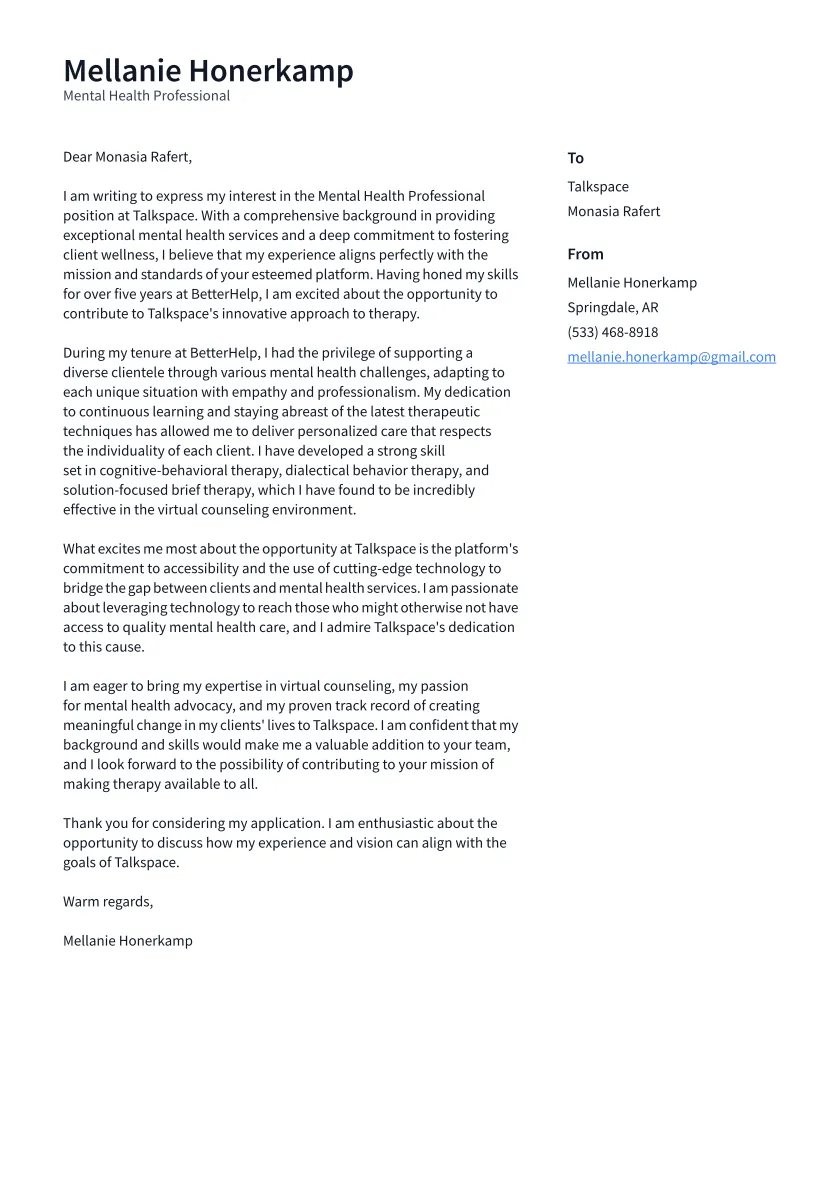Crafting a Powerful Cover Letter
A cover letter is your first opportunity to make a positive impression on a potential employer. It’s a crucial document that complements your resume and allows you to elaborate on your qualifications, skills, and experiences in a more personalized and compelling manner. In the competitive field of mental health, a well-crafted cover letter can significantly increase your chances of landing an interview. This article will explore the secrets to writing a cover letter that gets you hired, focusing on best practices for mental health professionals.
Understanding the Importance of a Cover Letter
Many job seekers underestimate the power of a cover letter. It’s not merely a formality; it’s a strategic tool that can set you apart from other candidates. It provides a platform to connect with the hiring manager on a personal level and express your enthusiasm for the position and the organization. In mental health, where interpersonal skills and a genuine passion for helping others are essential, a cover letter gives you the space to showcase these qualities.
Why a Cover Letter Matters
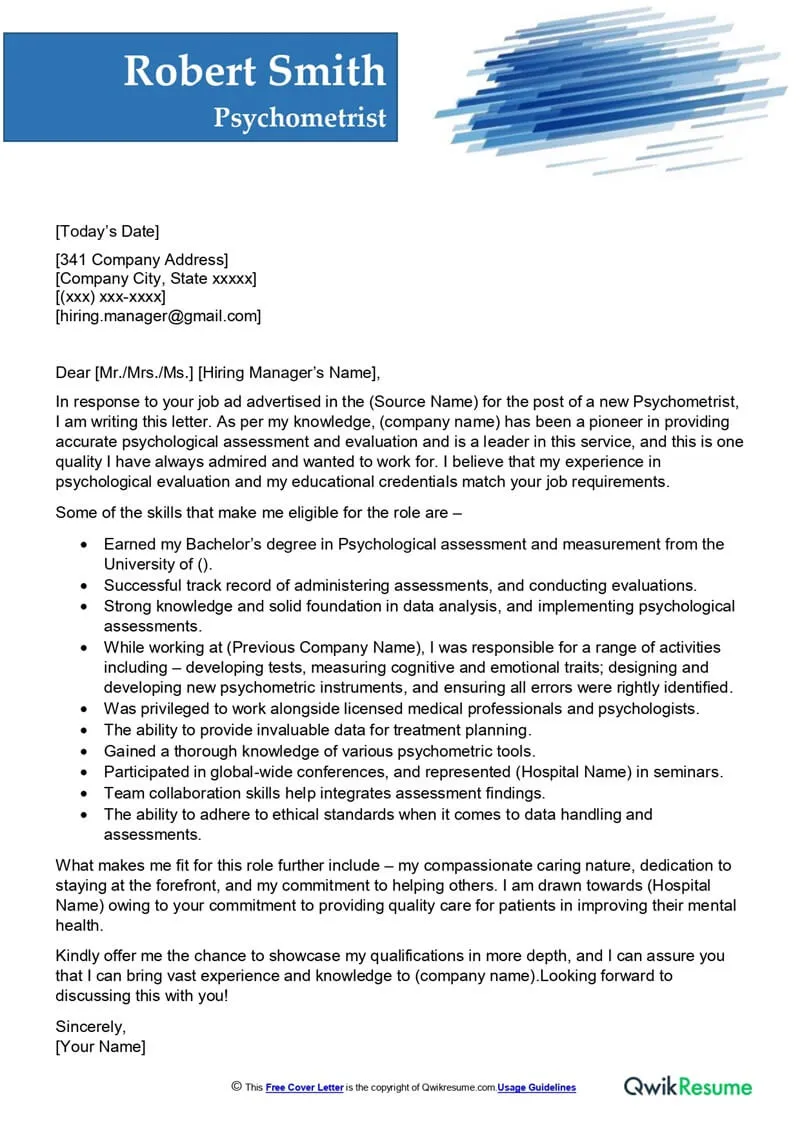
A cover letter allows you to explain any gaps in your employment history, career changes, or other relevant factors that might not be immediately apparent from your resume. It helps you tell a cohesive story about your career aspirations and how your skills and experiences align with the specific requirements of the job. For mental health professionals, it provides a unique chance to demonstrate your understanding of the challenges and rewards of the field, as well as your commitment to ethical practice and client well-being.
Making a Strong First Impression
Your cover letter is often the first thing a potential employer will read. A well-written letter that is free of errors, demonstrates a clear understanding of the job requirements, and reflects your professionalism will make a positive first impression. This initial impression can significantly impact whether your application moves forward in the hiring process. In the mental health field, this first impression sets the tone for how a potential employer perceives your communication skills and ability to connect with others, both critical elements in the field.
Key Components of a Cover Letter
A successful cover letter follows a standard structure. It should begin with your contact information, followed by the date, the hiring manager’s name (if known), and the company’s address. The body of the letter is where you will highlight your skills, experience, and qualifications, tailoring them to the specific job requirements. A strong closing reiterates your interest and includes a call to action.
Header and Contact Information
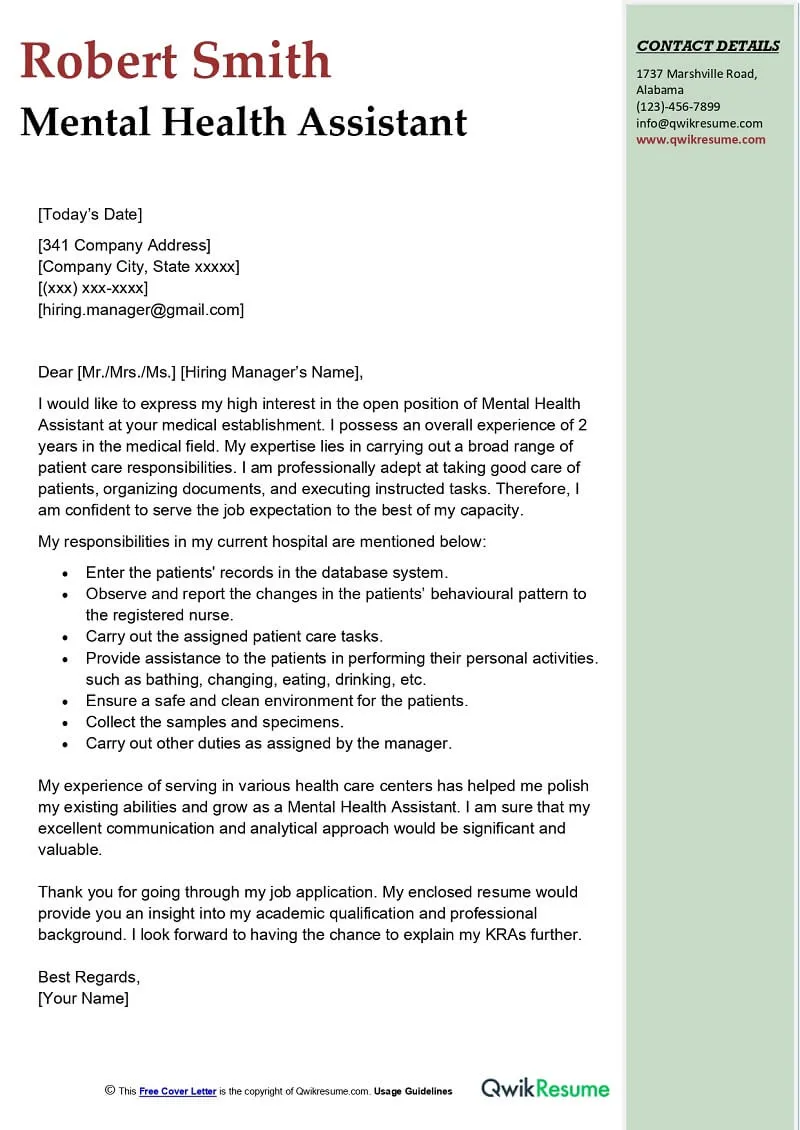
Begin with your name, address, phone number, and email address. Use a professional email address. Make sure the contact details are up-to-date and accurate. This section is your formal introduction, so it is vital to present it in a way that is neat and easy to read.
Professional Formatting
Use a standard font like Times New Roman, Arial, or Calibri in a size of 11 or 12 points. Maintain consistent formatting throughout the document, including font style, font size, and spacing. Use single-spacing within paragraphs and double-spacing between paragraphs. Ensure that your cover letter is easy on the eyes and presents a professional image of you.
Writing a Compelling Opening
Start with a strong opening paragraph that captures the reader’s attention. State the position you are applying for and how you learned about the opportunity. Express your enthusiasm for the role and the organization. This sets the tone for the rest of your letter and encourages the hiring manager to read further. In mental health, it is important to start with a clear statement of the position for which you are applying, as well as how your skills and experience align with the job.
Highlighting Relevant Experience and Skills
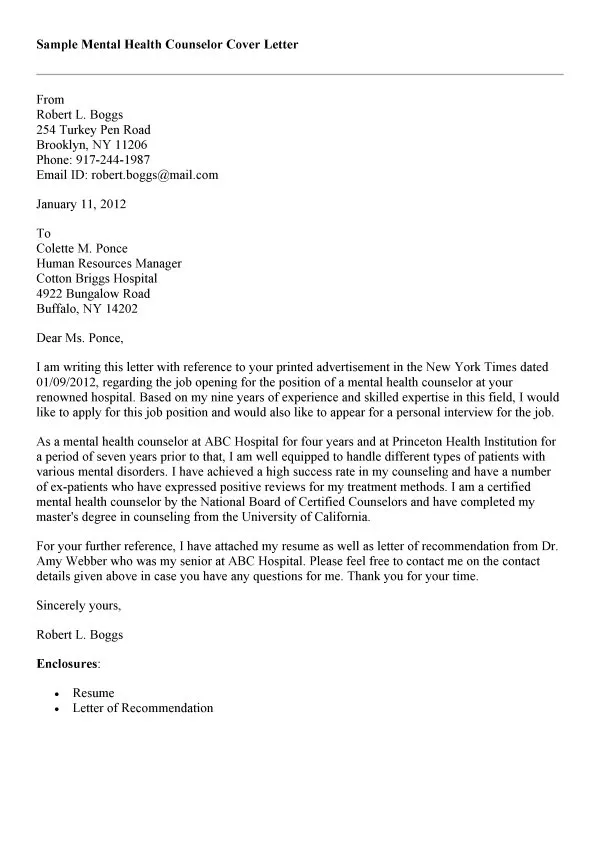
In the body of your cover letter, highlight the skills and experiences most relevant to the job description. Use specific examples to illustrate your accomplishments and how you have applied your skills in previous roles. Tailor your letter to each job application by focusing on the requirements and keywords mentioned in the job posting. Always ensure that the information you provide is relevant to the role and showcases how you are the best candidate.
Quantifying Achievements
Whenever possible, quantify your achievements using numbers and data. For example, you might mention the number of clients you’ve assisted, the percentage improvement in client outcomes, or the positive feedback you have received. This adds credibility to your claims and demonstrates your ability to deliver results. In mental health, providing quantifiable achievements, such as the number of successful therapy sessions or the number of patients you’ve helped, can demonstrate the value you bring to the role.
Tailoring Your Letter to the Job
Avoid sending generic cover letters. Customize each letter to the specific job requirements and the organization’s mission and values. Research the company, and demonstrate that you understand its goals and how your skills and experience align with them. Show the employer that you understand their needs and are genuinely interested in the role.
Researching the Company
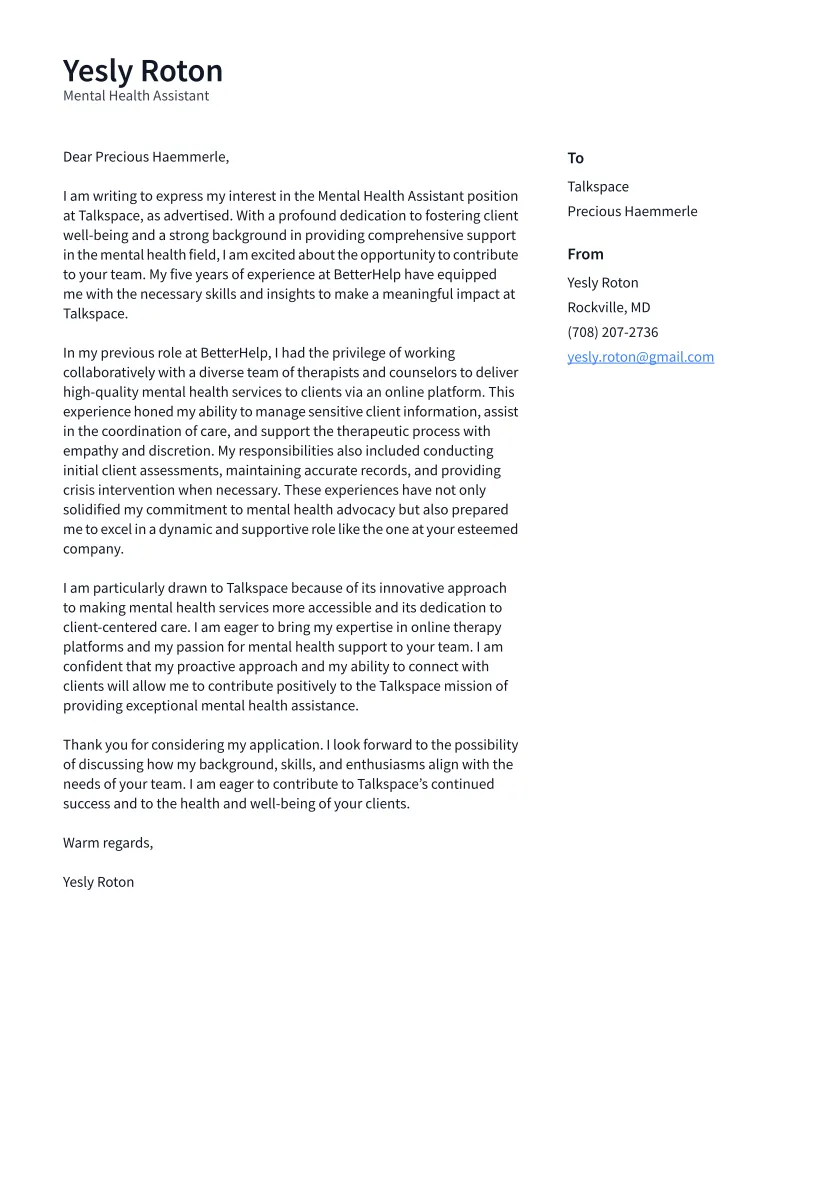
Before you write your cover letter, research the company’s mission, values, and services. This shows your interest and allows you to tailor your letter to demonstrate how your skills and experience fit into their organizational culture. Visit the company’s website and read testimonials. Show you understand the organization by including information from your research. This will help you to connect with the reader on a more personal level.
Showcasing Your Personality and Passion
Let your personality shine through while maintaining a professional tone. Express your passion for the field of mental health and your commitment to helping others. In the mental health field, emotional intelligence and empathy are highly valued. Therefore, let your passion for the role be seen. Show genuine enthusiasm for the position and the organization. This can significantly impact whether your application moves forward in the hiring process. It is also important to show your understanding of the challenges, and the rewards the field offers.
Crafting a Memorable Closing
Conclude your cover letter with a strong closing paragraph that reiterates your interest in the position and includes a call to action. Thank the hiring manager for their time and consideration, and express your eagerness to hear back from them. Include a statement about being available for an interview at their earliest convenience. This will make your application stick in the reader’s mind.
Proofreading and Editing
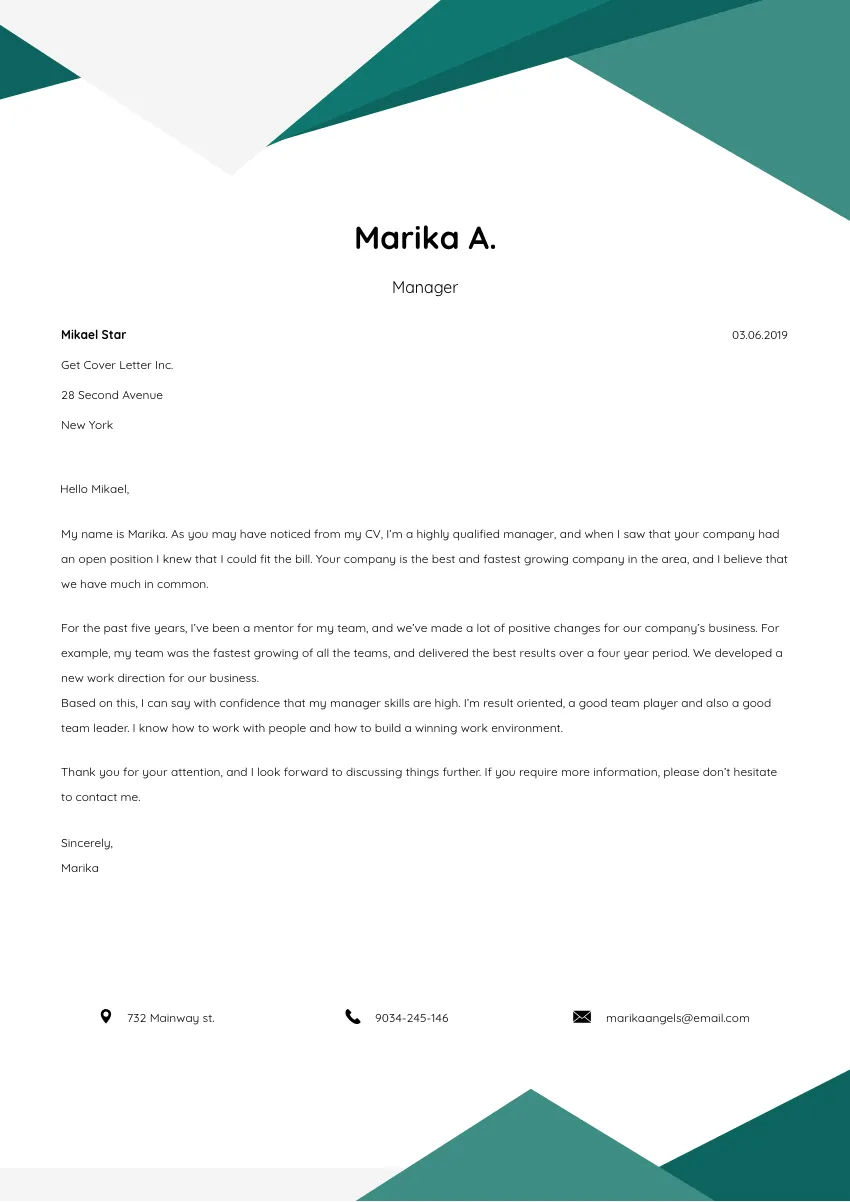
Before submitting your cover letter, carefully proofread it for any errors in grammar, spelling, and punctuation. A well-written and error-free cover letter demonstrates your attention to detail and professionalism. Always have another person read your cover letter to catch any mistakes you may have missed.
Checking for Grammar and Spelling Errors
Ensure that your cover letter is free of any grammatical errors and spelling mistakes. These errors can detract from the professionalism of your application. Use a grammar checker and read the letter out loud to catch any errors. In the mental health field, accuracy and clarity in communication are crucial, making correct grammar an important factor.
Ensuring Clarity and Conciseness
Keep your cover letter concise and to the point. Use clear and concise language. Avoid jargon or overly complex sentences. Make sure your letter is easy to read and understand. Highlight your key skills and experiences in a clear and concise manner. This clarity is particularly important in mental health, where communication is key.
Cover Letter for Mental Health Professionals
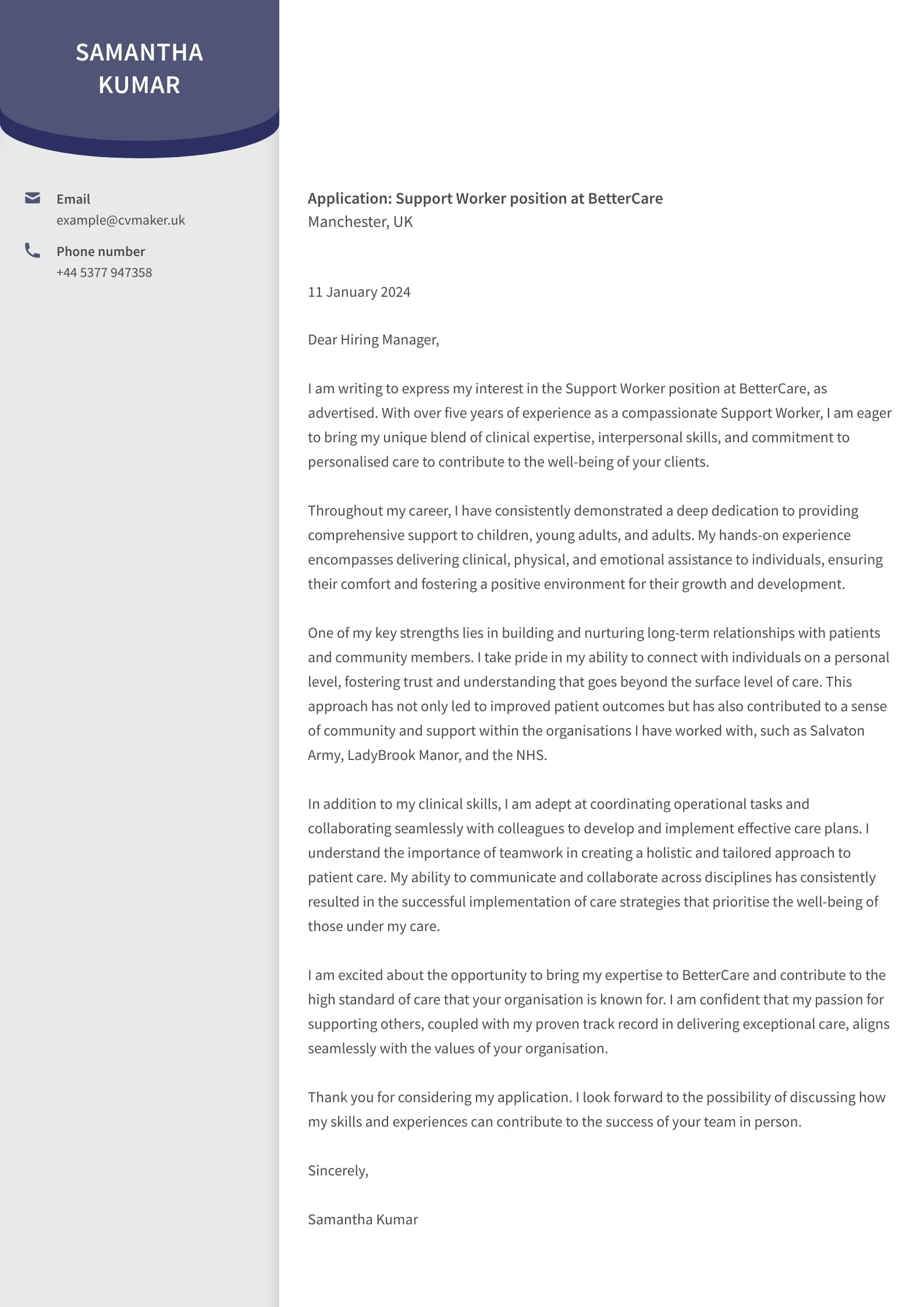
Mental health professionals often require specific qualifications, skills, and experiences. Therefore, a cover letter is especially useful in highlighting these elements. It allows you to communicate your ability to help others, to show compassion, and to address the sensitive needs of the patients. This allows you to show your qualifications, passion, and ability to succeed in the role.
Highlighting Relevant Experience
In your cover letter, provide specific examples of your experience working with clients or patients. Mention any specific therapeutic approaches, treatment modalities, or populations you have experience with. Highlight any skills and experiences related to working with various mental health conditions, age groups, and backgrounds. Providing concrete examples demonstrates your practical skills and experience.
Emphasizing Empathy and Compassion
Showcase your empathy, compassion, and ability to connect with patients. Explain how you strive to create a safe and supportive environment for your clients. Demonstrate your understanding of the challenges and rewards of working in the mental health field and your commitment to providing the best care possible. Let your passion for helping others shine through in your writing. Demonstrate that you are a caring and compassionate professional who is committed to the well-being of their patients.
Demonstrating Understanding of the Field
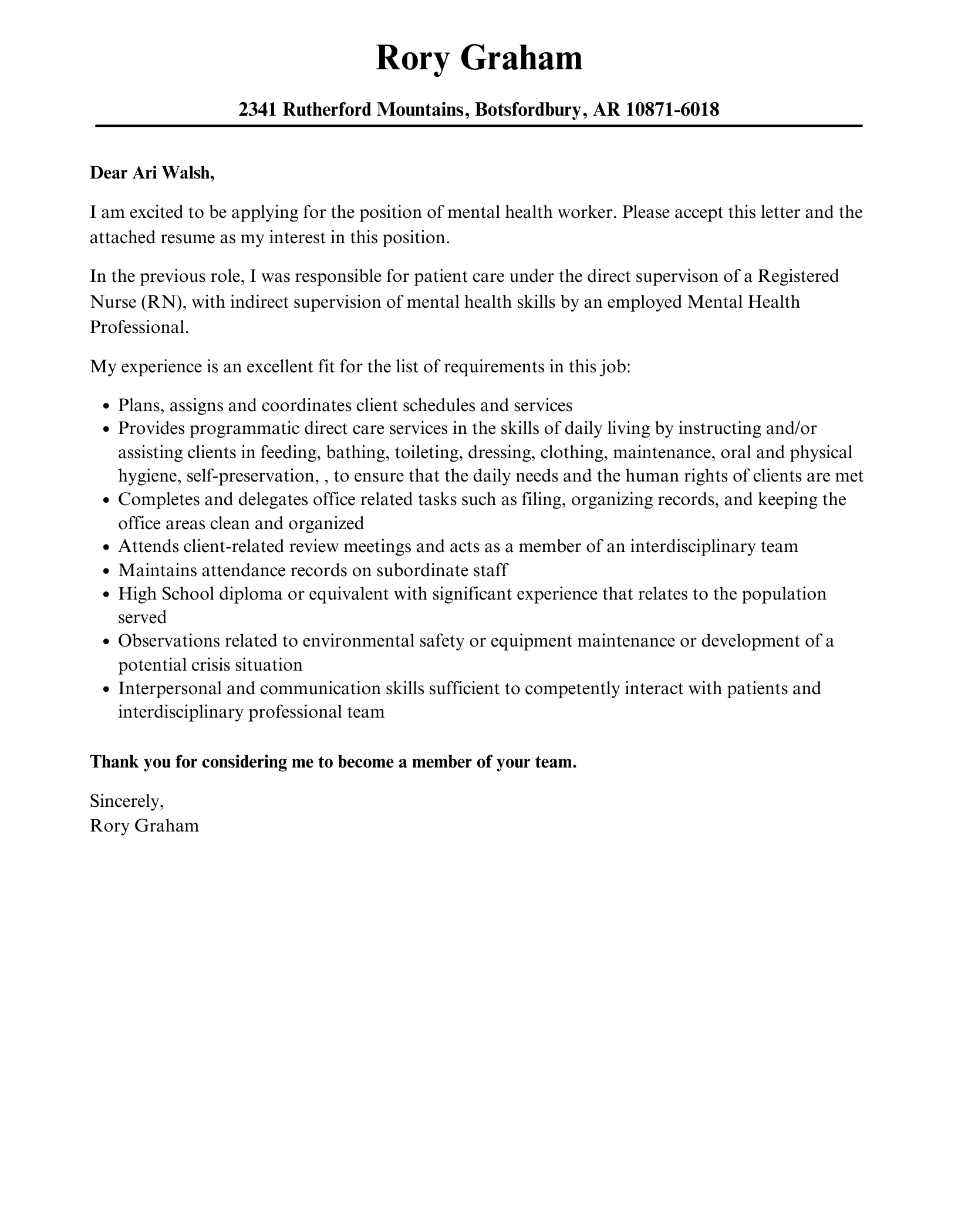
Demonstrate your knowledge of the mental health field. Mention relevant certifications, licenses, or training programs. Show that you are up-to-date with the latest developments and best practices in the field. Discuss the specific needs of the client population that the organization serves. This will help you to show the employer your qualifications and that you are the best candidate for the job.
